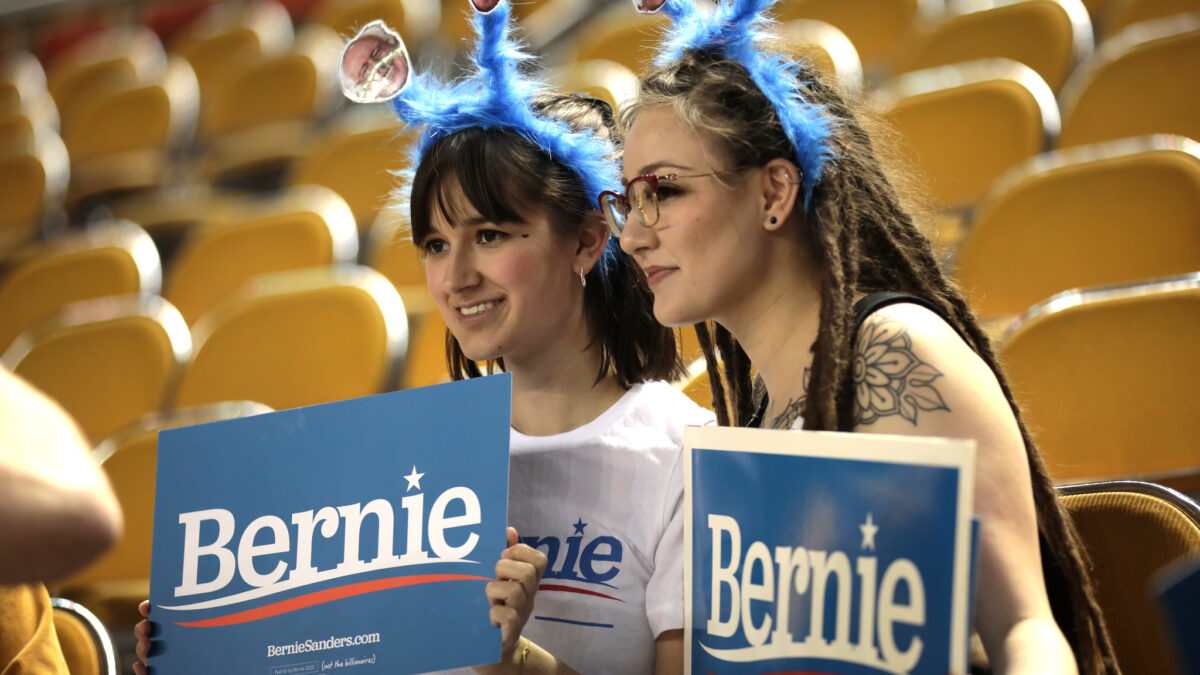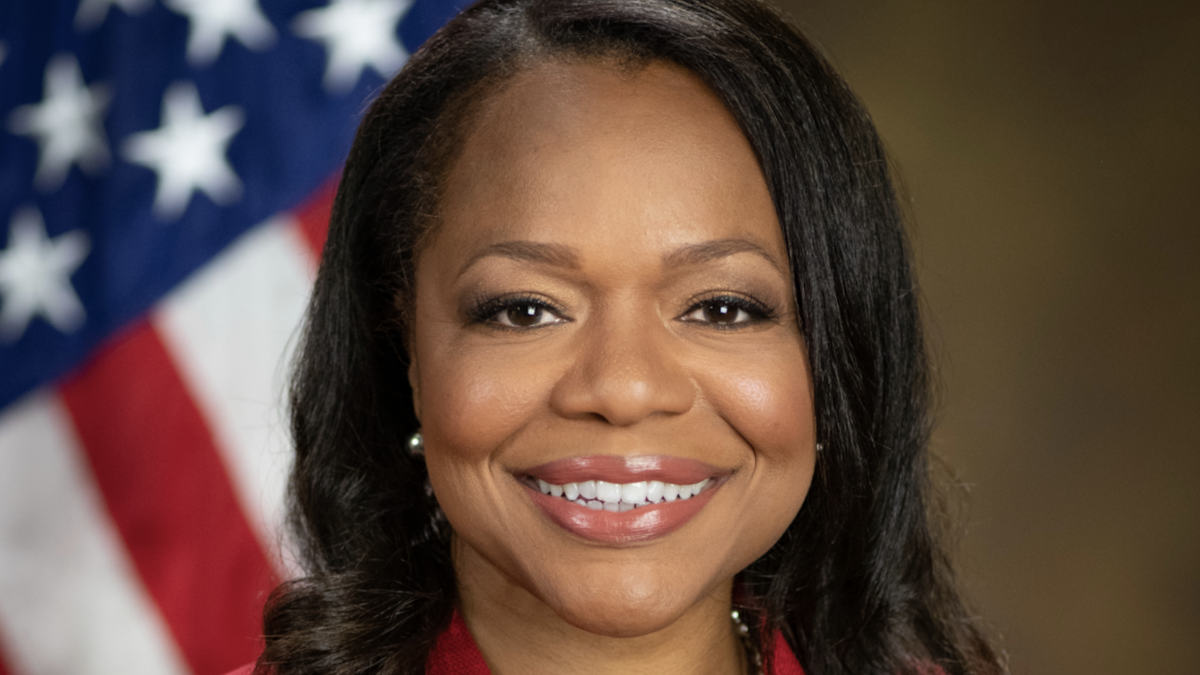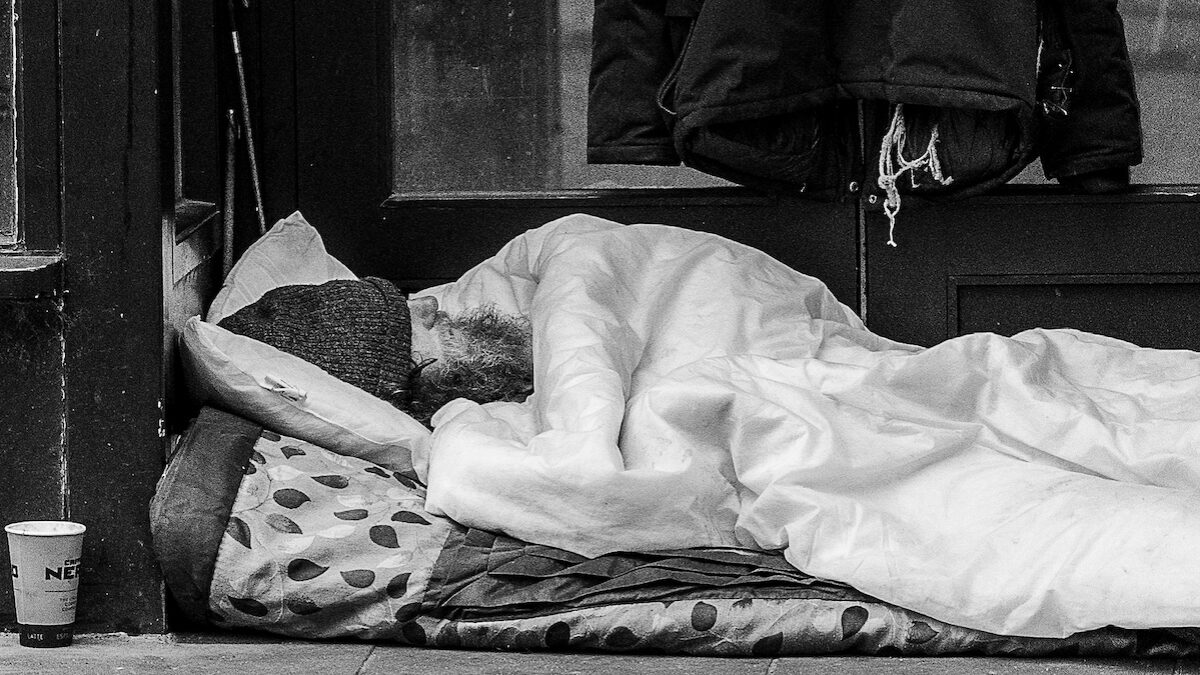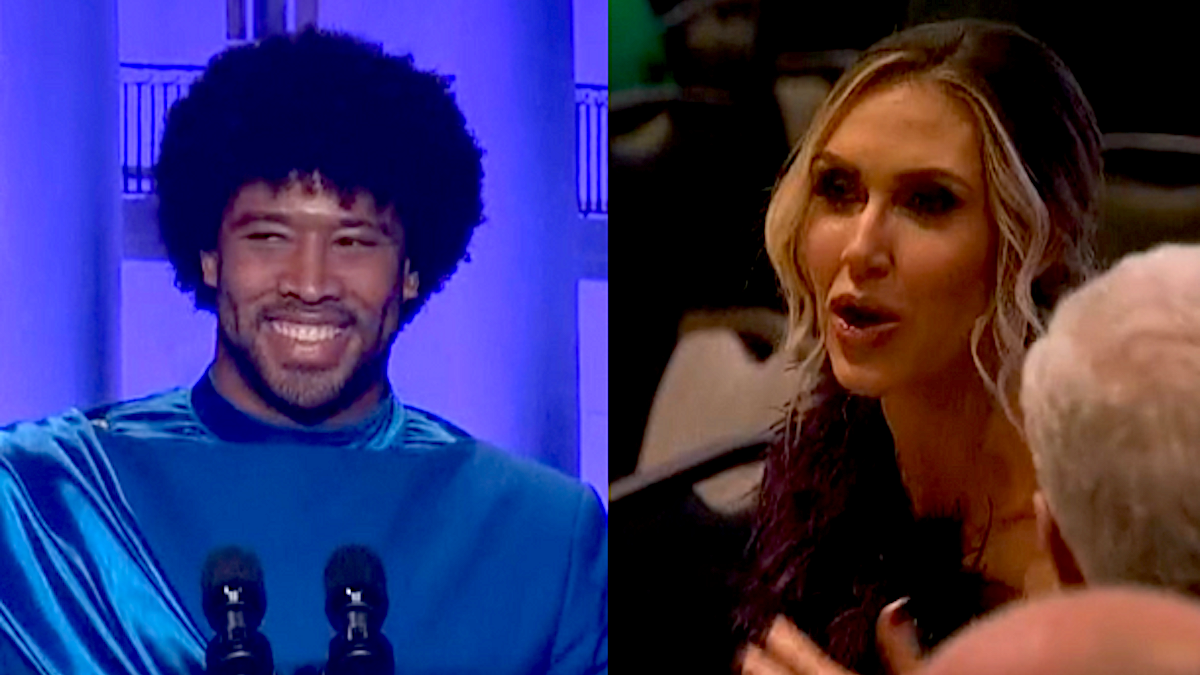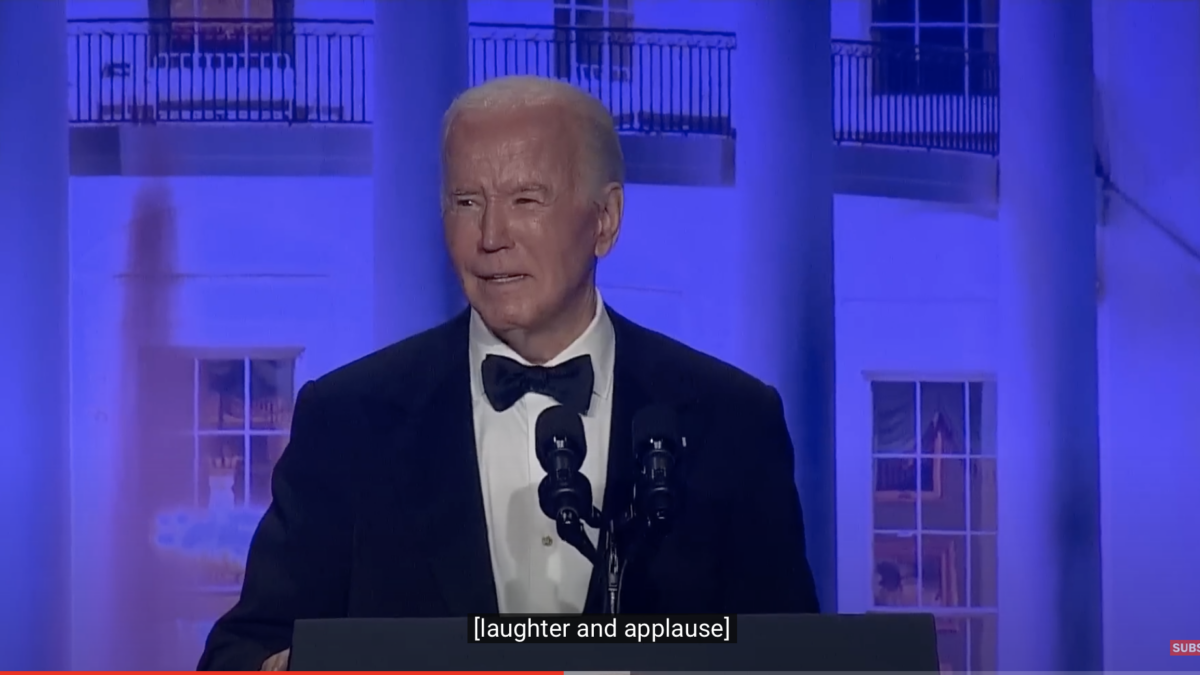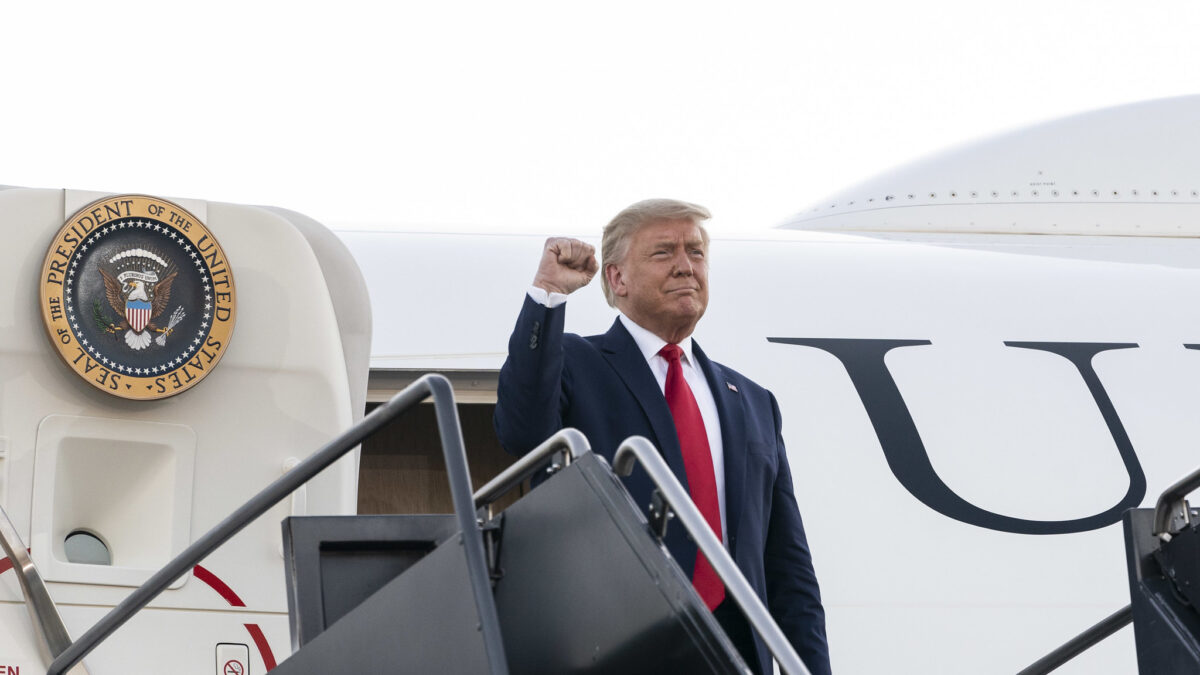A recent poll from Harvard University’s Institute of Politics found that voters born after 1996, also known as Generation Z, are extremely unenthusiastic about the prospect of a Trump-Biden rematch in this year’s presidential contest. Shockingly, and in a massive rebuke to President Biden and the Democrats, less than 50 percent of 18- to 29-year-olds now say they’ll “definitely” cast a vote in the 2024 election. With younger generations looking to third-party candidates or sitting out entirely, it’s important to understand the mindset of Gen Z and their political vision.
The emerging right-wing political ethos among Gen Z largely manifests as a response to the dominance of liberal ideals across nearly every facet of life.
Having been born in 1997, I just made the cut as a Gen Z’er. And as a former leftist, I grew up idolizing Barack Obama. He was cool. He made pithy jokes about Republicans and went on late-night TV. I was raised on “The Daily Show” and “Parks and Rec,” which taught me that the party of conservative fundamentalists and fat cats solidifies itself in resentment against the party of the young progressive visionary.
It wasn’t until I was in college that I decided to actually listen to conservative commentary straight from the source to discover exactly why they were wrong, and I was right.
My entire worldview collapsed over that semester, to the point that I questioned not only my deep attachment to leftist politics but my atheism as well. I had been so sure that the inevitable tide of modernity was rolling in, and the backward-facing rubes had to ready themselves for the progressive revolution. Now, for the first time, I was questioning that assumption.
2016 Outsiders on the Right and Left
The political revolution I had been a part of came to its apex with Sen. Bernie Sanders’ 2016 presidential run. In the primaries, he commanded a staggering 47 percent support from Gen Z and younger Millennials. Voters in the 18- to 24-year-old range gravitated toward the Vermont senator because of his coherent view for the future; his bold, leftist policies satisfied their concerns for social justice and climate change. Sanders was a leading advocate for provocative new programs like “Medicare for All” and “free” college.
He also addressed the problem of income inequality, which deeply connects with young people who feel the weight of the growing class divide on their future. And perhaps most importantly, he overwhelmingly won over Gen Z with his striking candidness and authenticity.
Politically interested Zoomers are extremely irritated by the authenticity deficit in American politics. Now that the spurious political platitudes of the 1990s and 2000s have become a meme, they can no longer be taken seriously.
I saw Bernie speak twice during his campaign, once in Boston and once in Amherst, Massachusetts. I don’t believe his popularity among Gen Z was because they craved a “socialist” revolution per se, but because Sanders offered something different. He went further than his Democrat compatriots. Not just Obamacare but Medicare for All. Not just a public borrowing option for college loans but an elimination of all student debt.
The popularity of Donald Trump among young Republicans revealed a similar sentiment. Trump was as different as could be from the recent history of Republican politicians and even carried the same percentage of the youth vote as Sanders, his left-wing doppelgänger. Trump’s outsider status and promise to “drain the swamp” resonated with many young conservatives who were disillusioned with the establishment politics of previous presidential losers like John McCain and Mitt Romney.
Trump was straightforward and highly entertaining during his debate performances, something Gen Z had no prior experience with in conservative politics. Like Sanders, the New York real-estate mogul vowed to challenge the status quo and represented a disruption to traditional politics.
And unlike the perceived stances of the rest of the 2016 Republican field, Trump did not take a hard line on social issues other than his relatively vague allusions to “political correctness.” He was not against gay marriage. In fact, he held up the gay pride flag at a campaign rally.
With roughly one-third of Generation Z not identifying with any religion, their standards on social issues have moved drastically to the left from previous generations, giving them one more reason to identify with this unorthodox Republican.
Adoration of the Animated and the Radical
The rise of more boisterous figures in American politics is the result of two particular ubiquities in our current generation. For starters, less than one in three Gen Z’ers believe that civic engagement encompasses both involvement in community initiatives and active participation in the political process. Among Generation X and Baby Boomers, these numbers are 58 percent and 70 percent, respectively. In short, many of us live online at the expense of real engagement in our local community. This makes us more susceptible to being influenced by radical content — and radical figures — pushed by social media algorithms.
This shift of political consumption from television to social media provided a greater opening for lively politicians. A prime example is Democratic Rep. Alexandria Ocasio-Cortez, who started as a Brooklyn bartender and is now the darling of young leftists, in part because of her masterful use of Instagram and TikTok.
Other young conservatives were drawn to Vivek Ramaswamy who, before suspending his campaign, delivered raucous performances during national debates, calling out the hypocrisy not only of the left-wing media class but of fellow conservatives of a bygone era.
Animated and radical political figures fill a desire in young Americans for entertaining politics but also for something deeper. It’s the inherent knowledge that we have lost something profound, even sacred, in our modern world — a void that my generation hopes can be remedied by iconoclasm and sweeping change.
Furthermore, for our whole lives, Gen Z has been living in a culture of vulgarity and pornography, permeating everything from the music we listen to, to the TV shows we watch and the advertisements we consume. In contrast to the Gen Z’ers who have moved left on social issues, politically engaged young conservatives want to be grounded in principles that recognize and take seriously the societal decay before our eyes. When a politician comes along who is perceived as a wrecking ball to the established social order, he becomes the new standard-bearer.
The absurdity experienced by young conservatives, especially in the academy, requires assertive voices to cut like acid through the mud. The backlash can sometimes veer into extremes, which must be fought against. The left-wing “woke” types can find their counterparts on the right in incels and genuine racists and misogynists. The answer to wokeness is not the right-wing version of wokeness — it’s normality based in tradition.
The modern conservative vision begins with the highest good, religion, and cascades down to ontology, epistemology, philosophy, and politics, ultimately forming a good people.
We’re in a time when the 1960’s Age of Aquarius has become the establishment. Rebellion has become normal. Transgressive is boring.
Gen Z conservatives have gradually come to see that embracing tradition is the new punk rock: Within our nihilistic culture, we can esteem the highest goods and have a joie-de-vivre. And for good or for ill, the bell tolls for yesterday’s political consensus.
